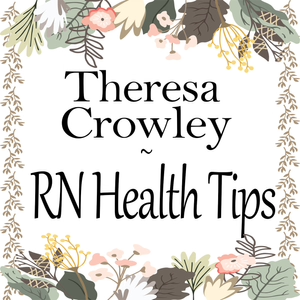
113. Going Home For the Holidays? Your 20-minute audio guide in Senior Living
11/18/22 • 18 min
So you’re home for the holidays and see signs of dementia or safety risks that could affect your loved one – what’s next?
If you notice any red flags, then it’s important to have a conversation with them and know what resources are available to you. Even if nothing bad has happened yet, the holidays are a great time while everyone’s together to discuss their wishes in case they need additional care.
The American Association of Retired People (AARP) did a study finding that 77% of Americans want to age in place at home. If this is the wish of your loved one, then it’s important to make their home safe. It’s important to consider fall prevention. Are their rugs bulging up? Are walkways cluttered? Do they have grab bars in the bathroom to prevent falls? Also consider an assistive device like a walker or cane if needed.
Medical alert devices are helpful in case of accidents and can come in bracelet or pendant form for your loved one to wear. However, technology can help: With a simple, “Alexa, call my son,” assistance is a call away.
Need a little extra help? Hourly home care and personal assistants can come help with medication, transportation, bathing, and more. However, the more you need them, the pricier they can be.
If staying at home isn’t an option, it’s important to know there are far more senior living options than just “nursing homes.”
-Active 55 and older communities: Great for if you don’t want to maintain a house or yard. They also offer socials, happy hours and more. These look like resorts.
Independent / retirement / all-inclusive living: Communities where your rent includes 2 or 3 meals a day, transportation, housekeeping and more - perfect if you don’t want to cook.
Assisted living: Everything included in independent living but with the addition of more personal care if you need extra help.
Memory care: Good for advanced dementia and problems wandering. Memory care offers activities to help those with dementia feel more successful.
Residential care homes: Located in regular neighborhoods and houses 6-8 residents on average. Great for people with dementia, mobility issues, or those who don’t prefer larger communities.
There’s much to discuss when you see your loved ones around the holidays. Be sure to bring it up in a loving, respectful way. If you sense they’re getting stressed when you bring up these topics, back down and let them know you want to honor their wishes in their remaining years.
Topics discussed:
Senior family members
Types of senior living communities
Signs of dementia / Alzheimer’s
Assistive devices
Fall prevention
Starting the conversation about senior care
Takeaways from this episode:
-It’s a gift when your family lets you know their wishes in case of emergencies. If they’re incapacitated or you’re in the dark about their financial situation, everything becomes much more stressful.
-The risk of falling rapidly increases for seniors over age 65. It’s important to look at your surroundings and assess, then minimize, risks.
-There are more resources than ever before for seniors to age in their own home. It’s critical to have the right tools and safeguards in place in case they need assistance, and to prevent falls and other accidents.
-In addition to staying physically safe, seniors should stay mentally and emotionally healthy through regular social outlets, whether that’s volunteering or visiting with their neighbors.
-“Nursing home” is not an umbrella term for all senior living communities. There are many different types that cater to different needs, and they’ve evolved far beyond the stereotype.
You may also like...
10 Warning Signs To Be Aware Of About Dementia:
A Conversation About Fall Prevention:
Getting Organized! Creating a Binder Of Essential Documents for Aging Parents:
So you’re home for the holidays and see signs of dementia or safety risks that could affect your loved one – what’s next?
If you notice any red flags, then it’s important to have a conversation with them and know what resources are available to you. Even if nothing bad has happened yet, the holidays are a great time while everyone’s together to discuss their wishes in case they need additional care.
The American Association of Retired People (AARP) did a study finding that 77% of Americans want to age in place at home. If this is the wish of your loved one, then it’s important to make their home safe. It’s important to consider fall prevention. Are their rugs bulging up? Are walkways cluttered? Do they have grab bars in the bathroom to prevent falls? Also consider an assistive device like a walker or cane if needed.
Medical alert devices are helpful in case of accidents and can come in bracelet or pendant form for your loved one to wear. However, technology can help: With a simple, “Alexa, call my son,” assistance is a call away.
Need a little extra help? Hourly home care and personal assistants can come help with medication, transportation, bathing, and more. However, the more you need them, the pricier they can be.
If staying at home isn’t an option, it’s important to know there are far more senior living options than just “nursing homes.”
-Active 55 and older communities: Great for if you don’t want to maintain a house or yard. They also offer socials, happy hours and more. These look like resorts.
Independent / retirement / all-inclusive living: Communities where your rent includes 2 or 3 meals a day, transportation, housekeeping and more - perfect if you don’t want to cook.
Assisted living: Everything included in independent living but with the addition of more personal care if you need extra help.
Memory care: Good for advanced dementia and problems wandering. Memory care offers activities to help those with dementia feel more successful.
Residential care homes: Located in regular neighborhoods and houses 6-8 residents on average. Great for people with dementia, mobility issues, or those who don’t prefer larger communities.
There’s much to discuss when you see your loved ones around the holidays. Be sure to bring it up in a loving, respectful way. If you sense they’re getting stressed when you bring up these topics, back down and let them know you want to honor their wishes in their remaining years.
Topics discussed:
Senior family members
Types of senior living communities
Signs of dementia / Alzheimer’s
Assistive devices
Fall prevention
Starting the conversation about senior care
Takeaways from this episode:
-It’s a gift when your family lets you know their wishes in case of emergencies. If they’re incapacitated or you’re in the dark about their financial situation, everything becomes much more stressful.
-The risk of falling rapidly increases for seniors over age 65. It’s important to look at your surroundings and assess, then minimize, risks.
-There are more resources than ever before for seniors to age in their own home. It’s critical to have the right tools and safeguards in place in case they need assistance, and to prevent falls and other accidents.
-In addition to staying physically safe, seniors should stay mentally and emotionally healthy through regular social outlets, whether that’s volunteering or visiting with their neighbors.
-“Nursing home” is not an umbrella term for all senior living communities. There are many different types that cater to different needs, and they’ve evolved far beyond the stereotype.
You may also like...
10 Warning Signs To Be Aware Of About Dementia:
A Conversation About Fall Prevention:
Getting Organized! Creating a Binder Of Essential Documents for Aging Parents:
Previous Episode

112. 10 Warning Signs To Be Aware Of About Dementia
The holidays will be here before you know it, and soon you may be visiting family members you haven’t seen in a while. When spending time with aging loved ones, it’s important to keep your eye out for changes in behavior since the last time you visited. These could be signs of dementia.
When it comes to dementia and Alzheimer’s, the more informed you are, the better support your family will receive. Senior Program Manager Megan Rowe from the Alzheimer’s Association for Dallas and Northeast Texas is here to explain the warning signs and provide tips for helping your loved ones.
First, understand the greatest risk factor for dementia is age, but it’s not a normal part of aging. You may think of memory loss when it comes to dementia – however, it could impact mood, daily routines, sociability, spatial awareness, balance, problem-solving, and even finances. In fact, financial fraud and exploitation can be an unwanted outcome for those with dementia, making it all the more critical to check on your loved ones.
When forgetfulness is involved, those with dementia tend to forget recently learned information, as well as important dates and events (like anniversaries). It’s more severe than forgetting where you parked, it’s being unable to even retrace your footsteps to find your way to your car. Forgetfulness can even become dangerous when your loved ones rely on daily medications.
Early detection is important, so be aware of the signs. That way, your loved one could even become involved in their own future planning and treatment. Ask yourself:
Is your loved one no longer doing something they used to love? For instance, maybe they no longer cook or go to church though they always used to.
Has their routine changed? Maybe they’re no longer caring for their hygiene or cleaning their house.
Do they tend to stay home and isolate themselves?
Are the bills getting paid?
How is their balance and spatial awareness?
Are they showing signs of anxiety, anger, or paranoia?
If your loved one is exhibiting signs of dementia, it’s important to identify a cause / type of dementia, as well as consider further treatment by a specialist. Keep in mind that staying social is also beneficial for living with dementia, not just for your loved one, but for all involved. Support systems are vital; plus, outcomes improve when loved ones stay social and active.
Topics discussed:
Dementia
Alzheimer’s disease
Signs of dementia / Alzheimer’s
How to help loved ones with signs of dementia
Home for the holidays
Treatment / support for dementia
Wandering
Financial exploitation of seniors
Power of attorney
Takeaways from this episode:
-For one person with dementia, it takes two and a half people to care for them. It’s important to have a support network because no one can handle it all alone.
-Sometimes other issues can mimic dementia symptoms, so be sure to rule out medication interactions, urinary tract infections, and more.
-Understand loved ones may be “covering” for each other. For instance, a spouse may try to cover up the signs of their partner’s dementia so people won’t worry.
-A person with dementia may have a fear of others finding out and distance themselves from their social groups and former routines. However, having a social life improves their quality of life and outcomes.
-One sign of dementia is having issues with visual and spatial relationships. Maybe it’s difficult to judge the distance of a car, or black-and-white tile may appear like holes in the ground.
-Go to alz.org for an appointment checklist for your doctor when determining the dementia diagnosis and treatment plan.
Resources discussed in this episode:
Visit the caregiver center online, with free e-learning, support groups, and education:alz.org
Call the 24/7 Alzheimer’s Association helpline:800-272-3900
What you need to know ahead of a doctor's visit, or when a dementia diagnosis may be imminent:
https://www.alz.org/alzheimers-dementia/diagnosis/visiting-your-doctor
To suggest a topic, be a guest or to support the podcast, please email [email protected] For more senior resources and to sign up to the newsletter, please visit:https://www.facebook.com/LoriWilliamsSeniorServices/https://www.instagram.com/theloriwilliams/https://www.linkedin.com/in/theloriwilliams/https://lo...
Next Episode

114. REPLAY: Let's talk about Parkinson's disease: causes, symptoms, treatments, resources
It’s estimated that Parkinson’s disease affects 1 million Americans. Ninety-six percent are diagnosed after age 50, and the incidence of disease increases with age. Since April is Parkinson’s Awareness Month, Senior Services Expert Lori Williams welcomes the CEO of the Parkinson’s Foundation, John Lehr.
John discusses:
What Parkinson’s disease is + the symptoms
The potential causes
Treatment plans and the importance of a care partner
Important resources for those with Parkinson’s
John draws from the wealth of knowledge from the Parkinson’s Foundation for a comprehensive, compassionate look at the disease. He echoes the purpose of the foundation: educating people with Parkinson’s as well as their care partners / families on what they can expect, and how to live as well as they possibly can.
Takeaways from this episode:
Early symptoms of Parkinson’s affect movement, but other body systems are affected: cognition, mental health, GI, sleep, senses, and more. Everyone is impacted differently.
Parkinson’s disease has unknown causes, but there’s a genetic and potential environmental component (such as exposure to napalm in the Vietnam War).
Treatments for Parkinson’s include deep brain stimulation, dopamine replacement therapy, exercise, and trying new things to keep the brain active and create new circuitry.
Outcomes for Parkinson’s are much improved when a care partner is involved and the patient takes medication regularly, exercises and tries new activities.
Topics discussed:
Parkinson’s disease
Symptoms of Parkinson’s
The Parkinson’s Foundation
Causes and treatment of Parkinson’s
Parkinson’s tremors
Dopamine / mental health
Care partners
Resources mentioned in this episode:
Parkinson's Foundation:
Parkinson's Toll number:
1 800 4PD INFO
Parkinson's Revolution initiative:
https://www.parkinson.org/get-involved/revolution
To suggest a topic, be a guest or to support the podcast please email [email protected]
For more senior resources and to sign up to the newsletter please visit:
https://www.facebook.com/LoriWilliamsSeniorServices/
https://www.instagram.com/theloriwilliams/
https://www.linkedin.com/in/theloriwilliams/
https://loriwilliams-seniorservices.com/aging-in-style-podcast/
If you like this episode you’ll love
Episode Comments
Generate a badge
Get a badge for your website that links back to this episode
<a href="https://goodpods.com/podcasts/aging-in-style-with-lori-williams-239526/113-going-home-for-the-holidays-your-20-minute-audio-guide-in-senior-l-26694611"> <img src="https://storage.googleapis.com/goodpods-images-bucket/badges/generic-badge-1.svg" alt="listen to 113. going home for the holidays? your 20-minute audio guide in senior living on goodpods" style="width: 225px" /> </a>
Copy




